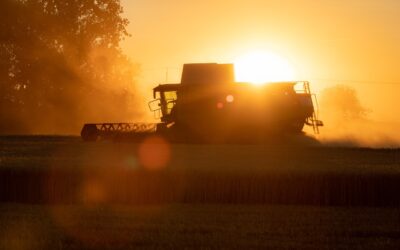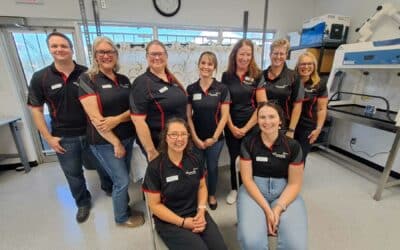20/20 Seed Labs has been doing fantastic work in the molecular analysis of spore samples, providing farmers with timely information regarding potential diseases that could be present in the air sweeping across their fields.
Through spore sampling, disease pathogens like Sclerotinia and Fusarium can be detected early in the air. This process involves a stationary passive device that traps these spores as they are carried by air currents. Our molecular team analyzes the results within 24 hours of receiving the cartridge from the trap.
The decision of when to spray is extremely time sensitive, and spore traps can provide farmers with the crucial information they need to make well-informed agronomic decisions for their crops. Our aim is to deliver the results of our tests as quickly as possible, and we are constantly exploring methods to improve the sample shipment processes.
We’re currently collaborating with experts from Wageningen University in The Netherlands. Together, we are investigating the potential of implementing a predictive model that incorporates active sampling. Using active sampling techniques, we could drastically reduce the time required for sample collection to just one to two hours and incorporate sampling from different locations from the test site. This accelerated process may eventually allow us to perform on-site DNA tests, providing results within a few hours, as opposed to the current 24-hour waiting period.
With DNA analytics, we deliver an accurate analysis compared to relying solely on microscopic examination. Microscopic data can be misleading, as spores from different strains can appear almost identical under the microscope. Without the benefit of DNA analysis, pinpointing specific pathogenic strains present in a sample becomes extremely difficult.
The integration of custom samplers and drones will further extend the capabilities of active spore sampling. Using predictive modelling in conjunction with weather stations can assist farmers in determining which fields should be prioritized for sampling, thus ensuring that they stay within the application windows for the spray products.
This technology is applicable to large- and small-scale farms and has already proven beneficial in greenhouses and other speciality crops to track pathogen loads. Interested in learning more? Feel free to reach out to our team to schedule a call.






